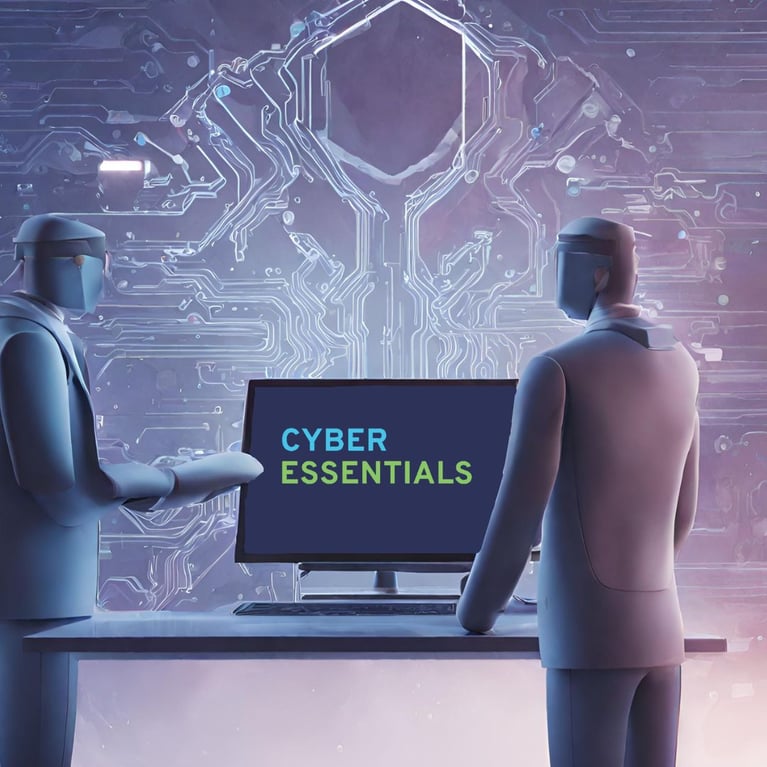In the ever-evolving digital landscape, businesses face a myriad of challenges, not least of which is compliance with various data protection and cybersecurity regulations. Navigating this complex terrain is crucial for businesses to protect not only their data but also their reputation and legal standing. In this comprehensive guide, we will delve into the intricacies of GDPR, Cyber Essentials, and other key compliance frameworks, highlighting their significance and providing actionable insights for businesses to stay compliant and secure.
Understanding GDPR: A Global Benchmark in Data Protection
The General Data Protection Regulation (GDPR) came into effect in May 2018, setting a new global benchmark for data protection. It applies to all businesses and organizations operating within the EU and to those outside the EU that offer goods or services to individuals in the EU.
Key Requirements of GDPR:
- Consent and Rights of Individuals: GDPR emphasizes the importance of consent and grants individuals more control over their personal data.
- Data Protection Impact Assessments (DPIAs): Organizations are required to conduct DPIAs for data processing activities that pose high risks to individuals' rights and freedoms.
- Data Breach Notification: GDPR mandates prompt notification to authorities and individuals affected by a data breach.
The Impact of GDPR:
GDPR has reshaped how businesses around the world handle personal data. It has led to a greater awareness of data protection and privacy rights among individuals and necessitated significant changes in business processes for compliance.
Cyber Essentials: Safeguarding UK Businesses Against Cyber Threats
Cyber Essentials is a UK government-backed scheme designed to help organisations protect themselves against common cyber threats. It provides a clear statement of the basic controls organisations should implement to mitigate risks from common internet-based threats.
The Five Key Controls of Cyber Essentials:
- Secure Internet Connection
- Secure Devices and Software
- Controlled Access to Data and Services
- Protection Against Viruses and Malware
- Keeping Devices and Software Up to Date
Benefits of Cyber Essentials Certification:
- Risk Mitigation: Reduces the risk of cyber threats by up to 80%.
- Market Differentiation: Enhances business reputation and helps differentiate from competitors.
- Supply Chain Assurance: Demonstrates security commitment to customers and supply chain partners.
Beyond GDPR and Cyber Essentials: Navigating a Multitude of Compliance Frameworks
While GDPR and Cyber Essentials are pivotal for businesses operating within the UK, it's crucial to recognize that the realm of compliance extends far beyond these two frameworks. This is especially true for businesses that either operate internationally or deal with data and transactions across borders. Understanding and adhering to a variety of compliance frameworks is key to ensuring legal and ethical operations.
Key Compliance Frameworks to Consider:
-
ISO 27001: This international standard outlines the specification for an information security management system (ISMS). It's relevant not just within the UK but globally, providing a set of standardized requirements for an ISMS.
-
PCI DSS: The Payment Card Industry Data Security Standard is critical for any organization that handles credit card transactions, including those in the UK. It sets the standards for protecting cardholder data and is a must for e-commerce businesses.
-
HIPAA: The Health Insurance Portability and Accountability Act, while a US-specific regulation, is relevant for UK-based businesses that deal with healthcare data of US citizens. Compliance with HIPAA is crucial for any transatlantic healthcare operations.
-
The Data Protection Act 2018: This Act is the UK’s implementation of the GDPR. While it aligns closely with GDPR, there are specific nuances and additional considerations under UK law that businesses must adhere to.
-
NIS Directive: The Network and Information Systems Directive applies to operators of essential services and digital service providers in the UK, focusing on the security of network and information systems.
Implementing a Comprehensive Compliance Strategy
Achieving compliance is not a one-time effort but an ongoing process. Here are steps to implement a comprehensive compliance strategy:
- Assess and Identify: Understand the specific regulations applicable to your business and assess your current compliance status.
- Implement Necessary Controls: Based on the assessment, implement the necessary controls and processes.
- Train Your Employees: Ensure your team understands the importance of compliance and is trained in relevant procedures.
- Regular Audits and Updates: Conduct regular audits to ensure ongoing compliance and update your practices as regulations evolve.
Conclusion: Staying Ahead in the Compliance Game
In conclusion, navigating the world of compliance is integral to the successful and ethical operation of businesses in today's digital world. By understanding and adhering to frameworks like GDPR and Cyber Essentials, businesses can not only avoid penalties but also build trust with customers and establish a strong foundation for safe and sustainable growth.
For businesses looking to navigate these complex compliance waters, Inflection Point offers expert guidance and solutions tailored to your unique needs. Reach out to us for a consultation and take the first step towards comprehensive compliance and enhanced data security.
 Top 10 Winter Tech Tips: Protecting Your Devices and Data in the Cold
Top 10 Winter Tech Tips: Protecting Your Devices and Data in the Cold Navigating the World of Compliance: GDPR, Cyber Essentials, and Beyond
Navigating the World of Compliance: GDPR, Cyber Essentials, and Beyond DNSFilter: Revolutionising Cybersecurity for Modern Businesses
DNSFilter: Revolutionising Cybersecurity for Modern Businesses Top 10 Festive Season Scams: Safeguarding Your Business Against Seasonal Cyber Threats
Top 10 Festive Season Scams: Safeguarding Your Business Against Seasonal Cyber Threats Embracing Next-Generation Cybersecurity with SentinelOne: A Deep Dive for Modern Businesses
Embracing Next-Generation Cybersecurity with SentinelOne: A Deep Dive for Modern Businesses